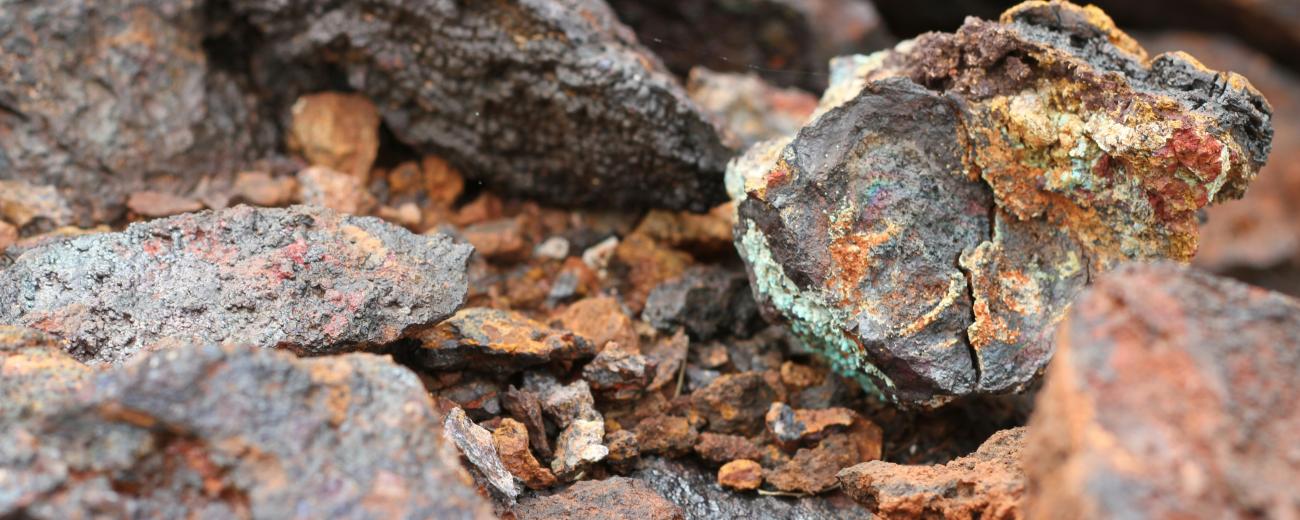
Linking critical minerals to economic transformation: how to move from wishful to strategic thinking

Key information
- Date
- Time
-
5:30 pm to 7:00 pm
- Venue
- SOAS University of London
- Room
- R201, Main Building
- Event type
- Conference
About this event
A large proportion of the minerals and metals deemed critical for low-carbon technologies/green transition are held in low and middle-income countries.
The Democratic Republic of Congo has nearly half the world’s cobalt, Rwanda is the world’s largest exporter of tantalum, South Africa is the world’s largest producer of platinum and manganese. In Latin America, Chile, Argentina, and Bolivia collectively hold most of the world’s lithium reserves, while China dominates the production of rare earth elements. According to the IEA demand for lithium rose by 30% in 2023, while demand for nickel, cobalt, graphite and rare earth elements all saw increases ranging from 8% to 15%.
Many countries are hoping that the high values these minerals command can be leveraged to support economic development. Countries want to move from exporting unprocessed minerals to adding value at home, creating quality jobs by moving into processing and manufacturing of green technology products such as wind turbines, batteries and electric vehicles.
However wishful thinking will not make this a reality. Natural resource extraction has for centuries been based on a largely exploitative model which has done little to enrich or transform host economies. Why would critical mineral extraction be any different now, particularly given the additional difficulties posed by the need for low carbon production? Progress will require a clear analysis of the international landscape, an understanding of the interests of the diverse actors involved and strategic government action.
This SOAS DLD Conversation will bring together experts in this field to share their thinking on this difficult development challenge.
Photo credit: Paul-Alain Hunt via Unsplash.
About the Speakers
Isabelle Ramdoo is Deputy Director of the Intergovernmental Forum on Mining, Minerals, Metals and Sustainable Development) and leads its work on local content policies and the New Tech, New Deal project. Isabelle is an economist with over 20 years of experience in trade negotiations and industrial policy. She has worked as a senior advisor to the African Minerals Development Centre/United Nations Economic Commission for Africa, as Deputy Head of Programme, Economic Transformation, at the European Centre for Development Policy Management, and as an economist and trade negotiator for the Government of Mauritius.
Amir Lebdioui is an Associate Professor of the Political Economy of Development at the University of Oxford and Directorship of the University's Technology and Management Centre for Development (TMCD). He also leads the Oxford Policy Engagement Programme on Green Economic Transformation in Latin America. Before joining Oxford, Amir was a lecturer in the Department of Development Studies at SOAS, University of London. Amir’s first book Survival of the Greenest: Economic Transformation in a Climate-conscious World was recently published and is available open-access.
Paul Atherley is the Chairman and founding Chairman of LSE-listed Pensana Plc and of Tees Valley Lithium Ltd. Pensana is establishing one of the world’s largest undeveloped magnet metal rare earth projects in Angola and Tees Valley Lithium has received planning permission for Europe’s largest Lithium refining facility at the Teesside Freeport, UK. Paul is also an advisor and member of the Investment Advisory Committee for the Arch Sustainable Resources Fund which is focussed on Africa and has a strong DEIS as well as ESG focus. He is a mining engineer from Imperial College, London with postgraduate qualifications from the University of New South Wales and Deakin University in Australia and is a strong supporter of women in STEM.


